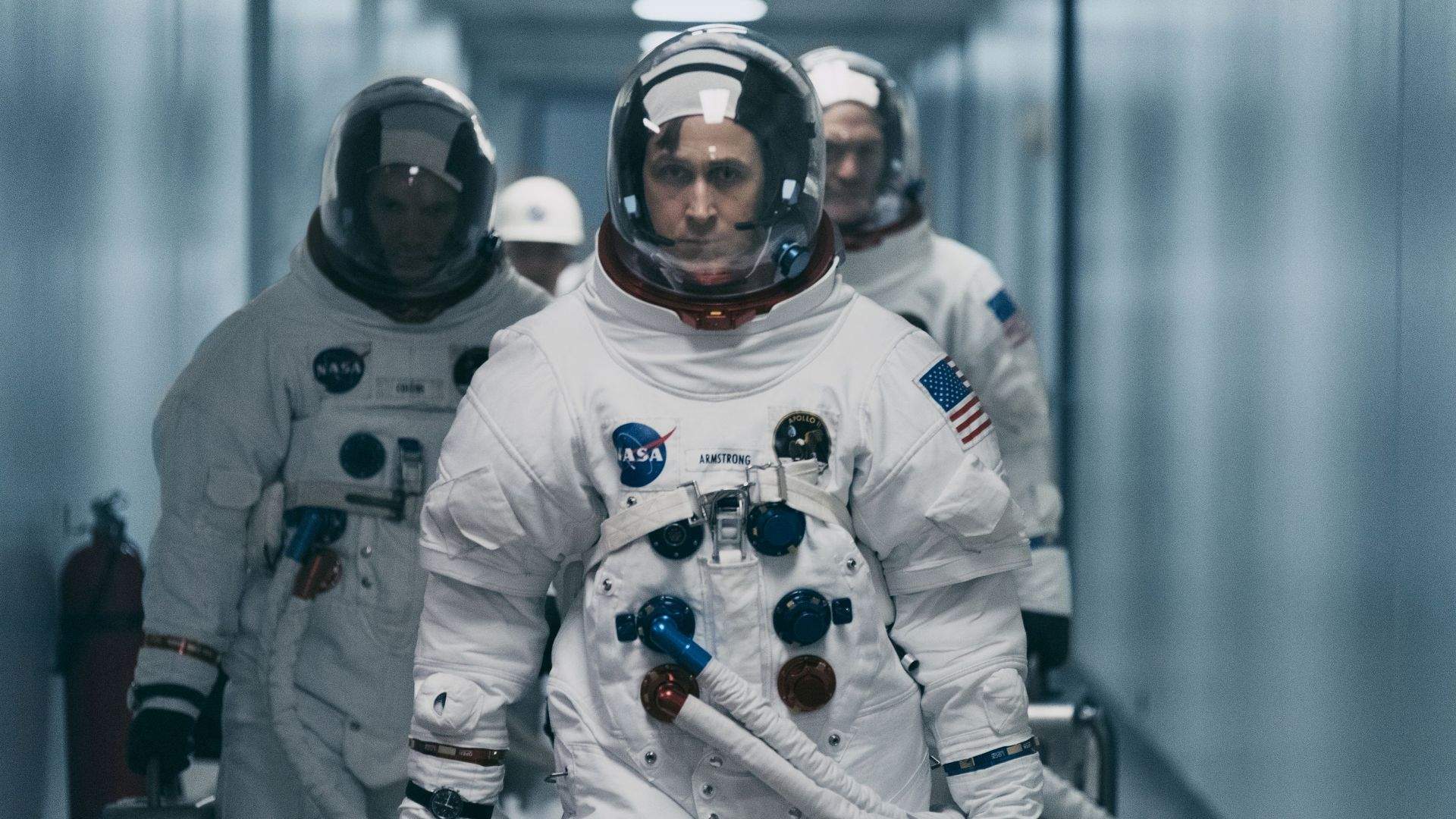First Man
An intimate and breathtaking character study that reminds us exactly why we still love going to the movies.
Overview
Whether by chance or the greatest promotional tie-in for a movie release in recent history, a glorious full moon shone over the First Man premiere in Sydney. An impressive enough sight going in to the cinema, it held a near-magical allure on the way back out. Even now, some 50 years since the first manned lunar landing and a lifetime of technological advancements beyond, to look up and consider the deed still feels unreal; an impossibility requiring far too much luck, daring and genius for anyone to even consider it. And yet…the Eagle did land. Directed by Damien Chazelle (La La Land), First Man is at once the story of mankind's greatest ever technological accomplishment and the enormous sacrifices required to achieve it.
Set against the backdrop of extreme US/Soviet tensions, First Man chronicles the NASA side of the infamous space race and highlights the extraordinary challenges precipitated by such a Herculean task. How, for example, do you come up with a list of requirements for something that's never been done before? Who is the right person for the job when your greatest understanding of what that job is is little more than a guess? This was precisely the challenge facing the newly established space agency in 1958 as it set out to find seven willing, qualified and extraordinarily capable candidates to undertake the first ever manned flights into space. One of those individuals was, of course, Neil Armstrong, whose portrayal in First Man by Ryan Gosling conveys an introverted and emotionally repressed family man possessed of unyielding skill and determination.
Inevitably, films based on real world events at once benefit from, and are challenged by, an audience's knowledge of what ultimately happens. The inevitability of catastrophe in disaster films, for example, contributes to a powerful and compounding tension that can become almost unbearable. The key to maintaining drama in these films is to focus on the human stories at their core and shine a light on the details lesser known. How, though, do you find an unknown detail in perhaps the best-known story of the last century? That humans landed on the moon is far from a surprise twist, and that the first man to do it was Armstrong is such a given it's used as the title of the film.
And so First Man, penned by Josh Singer (Spotlight), spans the eight physically and emotionally gruelling years of Armstrong's life prior to his iconic small step, beginning with an excruciatingly tense and near-fatal solo test flight into the earth's upper atmosphere. Singer's screenplay is tantalisingly layered, offering little by way of dialogue yet enormous scope for nuanced performances in the hands of an accomplished ensemble. Chazelle's direction is likewise sublime, especially during the film's more kinetic scenes where you feel just as drained and challenged as those on screen. The claustrophobia of the tiny capsules, the relentless g-forces of an out-of-control gyroscope, and the deafening silence of space, combine to assault the senses in the best possible way, aided by a level of sound design that will surely prove the frontrunner come awards season.
On the performance front, The Crown's Claire Foy grounds the tale (as much literally as symbolically) as Armstrong's wife Janet, reminding us of the significant sacrifices made on all sides of this story. Jason Clarke, Kyle Chandler, Corey Stoll and Ciarán Hinds round out the impressive troupe, with Stoll's performance in particular painting Armstrong's eventual co-pilot Buzz Aldrin in a surprisingly blunt and unlikeable light. Gosling's scenes with Clarke, too, prove some of the film's best; a meaningful friendship borne of fierce competition, and a closeness that permitted acknowledgements of extreme grief, fear and uncertainty without ever giving voice to the words.
In the end First Man is, despite its scale and subject matter, an intimate character portrait rather than a history lesson. It eschews the traditional pomp and grandeur of NASA control room scenes for dimly lit kitchens and moonlit walks, yet remains every bit the space odyssey such a tale commands. Filmed for IMAX, it should be seen the same way – an honest, tense and compelling picture that reminds us exactly why we love going to the movies.





